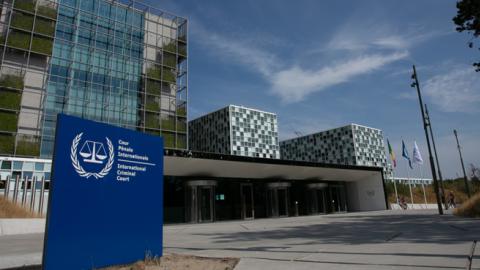The establishment of the International Criminal Court (ICC) in the Hague is a testament to liberal normative aspiration in international politics—the conviction that there should be a neutral juridical body, beyond the influence of the ebb and flow of political power among states, that is capable of holding the perpetrators of atrocities or aggression to account. Now, more than twenty years after the negotiation of the 1998 Rome Statute––the treaty establishing the court––and coming up on seventeen years since the ICC entered into force in 2002 with the ratification by sixty state-parties, one vexing question for proponents of international justice is that of how far beyond mere aspiration the court has managed to get.
The U.S. government has had a highly ambivalent attitude toward the ICC from the beginning. Washington long supported a jurisdictional procedure for an international criminal court that would require a United Nations Security Council (UNSC) resolution for the court to begin an investigation. The UNSC had previously authorized the establishment of special international tribunals to deal with atrocities in the former Yugoslavia and Rwanda. Requiring UNSC action for a free-standing tribunal would, of course, subject its jurisdiction to a veto by any of the five permanent members (P5) of the Security Council. For many proponents of international justice, this potential limitation was unacceptable. “A court worth having,” as then Canadian Foreign Minister Lloyd Axworthy insisted, was incompatible with impunity at the behest of the P5. The Rome Statute thus also allowed the prosecutor to assert jurisdiction proprio motu (on her own motion) upon obtaining evidence that atrocities had been committed by a national of a state-party to the Rome Statute or on the territory of a state party.
President Clinton signed the Rome Statute in December 2000, shortly before leaving office, but he did so while affirming U.S. concerns about “significant flaws” in the treaty. Clinton specifically cited the ICC’s potential claim of jurisdiction over the nationals of states that had not ratified it, saying he would not submit the treaty to the U.S. Senate for ratification, nor would he recommend that his successor do so, until such “fundamental concerns” were satisfied. The expressed concern was that officials and military personnel of the United States, a global power with extensive military commitments, might be called to account before the court, even though the United States was not a state-party. Within the U.S. government, this concern was especially prevalent among senior military officers. Outside of the government, a more ideological version of this concern held that an unaccountable international court could seek to constrain the United States by targeting American officials for prosecution for official actions; in this view, the court could easily become a rogue institution capable of attacking the sovereignty of the United States.
From Hostility to Pragmatism
Under President George W. Bush, the United States “unsigned” the treaty in a 2002 letter from then Under Secretary of State for Arms Control and International Security John R. Bolton, a leading critic of the court and President Trump’s current national security advisor. Under the 1969 Vienna Convention (which the United States likewise signed but has not ratified), a signature on a treaty subject to ratification obliges the signatory not to take action that would “defeat the object and purpose” of the treaty. The Bolton letter relieved the United States of that formal obligation. The Bush administration subsequently undertook a major diplomatic initiative to adopt bilateral agreements, according to which countries pledged not to turn over each other’s nationals to the court without consent. These were called “Article 98 agreements” after the provision of the Rome Statute that allowed for them, and therefore the U.S. pursuit of them did not require “unsigning” the treaty.
Opposition to the court was especially vocal among Republicans in Congress, leading to the passage of the American Service-Members’ Protection Act (ASPA), which Bush signed into law in August 2002. It forbade U.S. cooperation with, or assistance to, the court, and, most notably, it gave U.S. presidents blanket authorization to use “all means necessary” to free any Americans in the custody of the court or held anywhere pursuant to the order of the court. That provision earned ASPA the nickname “the Hague Invasion Act.”
However, this overt hostility to the court was hardly the end of the story for the Bush administration. In 2005, the French mission to the United Nations crafted a resolution to establish an international legal framework to provide accountability for atrocities and genocide in the Darfur region of Sudan by referring the situation to the International Criminal Court. The resolution was designed to test whether the stated grounds of U.S. opposition to the court were genuine, or merely a pretext for deeper ideological opposition. Sudan was not a party to the Rome Statute; here, however, in accordance with long-stated U.S. preferences, the UNSC would be “authorizing” the court’s jurisdiction by asking the prosecutor to investigate. The resolution also explicitly provided that the court would not have jurisdiction over nationals of states that were not party to the Rome Statute.
President Bush, himself deeply troubled by the atrocities in Darfur, was eager to find a way forward on Sudan at the Security Council. France and others insisted that a legal framework was the first step. The United States had signaled a preference for a special tribunal along the lines of those which the Security Council had authorized for Rwanda and the former Yugoslavia. France and others insisted that there was no need for a new tribunal when the International Criminal Court could do the job. To the surprise of many, the Bush administration did not veto UNSC Resolution 1593, but rather abstained. Thus, the court took jurisdiction over the situation in Darfur, ultimately issuing a warrant for Sudanese President Omar al-Bashir on charges of genocide and crimes against humanity—the first such indictment of a sitting head of state.
This marked the beginning of a period of pragmatic U.S. engagement with the court, an engagement which deepened during the Obama administration in which many officials had a favorable view of the court. Meanwhile, the court’s prosecutor for its first ten years, Argentina’s Luis Moreno Ocampo, conducted himself in a fashion that seemed designed to reassure the United States that the court was nothing like the rogue institution critics envisioned. While non-governmental organization representatives and others did indeed ask the court to investigate the conduct of U.S. officials—over events in Iraq, for example —the prosecutor’s office quietly demurred. Ocampo waited until 2010 to open an investigation on his own motion, looking into violence in Kenya following the 2007 election.
To the disappointment of many advocates for the court, however, the Obama administration made no significant push toward U.S. membership. The policy was limited to “engagement.” One noteworthy 2011 Obama administration decision was that of deploying U.S. special forces to Africa in pursuit of Joseph Kony, the notorious head of the Lord’s Resistance Army, wanted at the International Criminal Court since 2005 on charges of war crimes and crimes against humanity. Had U.S. forces apprehended Kony, it seems likely he would have ended up at the Hague to answer the charges, signaling a higher level of cooperation with the court by the United States government. But Kony eluded his pursuers, and the United States ended its participation in the search in 2017, citing Kony’s diminished relevance as a security threat. What might have happened remains hypothetical. While the Obama administration sent a delegation to the court’s 2010 review conference in Uganda, the administration sought no fundamental change in U.S. relations with the court beyond warmer rhetoric.
The incoming Trump administration had little to say about the court before Bolton’s arrival as national security advisor. Nevertheless, the emphasis the president and other officials have placed on the prerogatives of U.S. sovereignty, and their skepticism toward institutions of global governance, hardly boded well for the U.S. government’s relationship with the court. Meanwhile, Moreno’s successor, Fatou Bensouda of Gambia, sought—and was later denied—the permission of the court’s pre-trial chambers to open an investigation into alleged atrocities in Afghanistan, and has opened a preliminary examination (the process of determining whether to open an investigation) into the case of Palestine. Both situations are highly volatile in the context of U.S. politics.
Bolton himself removed all doubt about the Trump administration’s view of the ICC with a comprehensive attack on the court in a September 2018 speech at the Federalist Society, an organization of constitutional conservatives and libertarians, in Washington. He called the court “illegitimate” and a threat to “American sovereignty and U.S. national security interests.” He vowed, “We will not cooperate with the ICC. We will provide no assistance to the ICC. We will not join the ICC. We will let the ICC die on its own. After all, for all intents and purposes, the ICC is already dead to us.”
In addition to the familiar sovereigntist ideological concerns, Bolton also took note of certain aspects of the court’s operation that have been subject to broader criticism. “Since its 2002 inception,” he noted, “the court has spent over $1.5 billion while attaining only eight convictions.” The latest prosecution to go awry was in January 2019, when former Ivory Coast President Laurent Gbagbo was acquitted on charges related to post-election violence in 2010 that left thousands dead. Sudan’s Bashir, meanwhile, has never been brought to trial, and the Kenya investigation collapsed due to lack of evidence. Bolton also noted that over 70 nations—including the United States, China, India, and Russia—were not members of the ICC, and that several African countries likewise withdrew or threatened to pull out on the grounds of what they perceived as the court’s disproportionate targeting of Africans.
In giving voice to these practical criticisms, however, Bolton inadvertently exposes a weakness in his broader case against the court. It is true that the court is far from universal in its jurisdictional reach, with many major powers on the outside. It is also true that the court’s heavy involvement with situations in Africa has raised concerns about its legitimacy there. And it is likewise true that the court doesn’t have a lot to show in the way of bringing perpetrators of atrocities to justice. The cumulative impression here, however, is not that of a rogue colossus of globalism bestriding the world and picking off malefactors willy-nilly on its own say-so; it is that of a barely effective, fledgling institution struggling to have any impact at all.
The problem with the ICC is not that it is all-powerful, per the Bolton vision, but rather that it is, structurally, all but powerless. It is entirely dependent on state power to give its proceedings effect. The Kony example provides a tantalizing glimpse of possibility—that of a state using its instruments of power to hunt down a fugitive perpetrator of heinous acts, and hauling him before an international court that will hold him accountable—but the hunt for him was always no more than a possibility. Far more familiar, alas, is the image of Sudan’s Bashir thumbing his nose at the court for years.
For now, the ICC could only wish to be half the institution Bolton fears and despises—that is, a court capable of dealing with the “worst of the worst” alleged perpetrators of atrocities–let alone an independent legal check on the exercise of U.S. power. The gap between what the court’s proponents would like it to be and what it is capable of doing is vast, and it is not diminishing.
Read in the Georgetown Journal of International Affairs

















